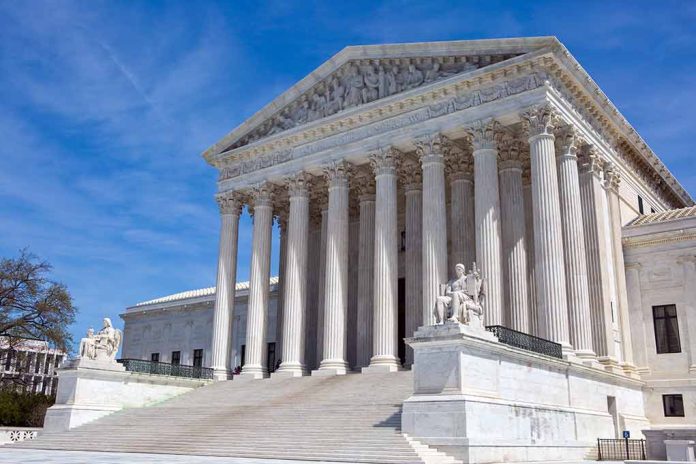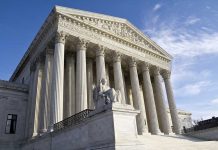
The Supreme Court backs Arizona’s voter citizenship proof law, a decision welcomed by the GOP.
At a Glance
- The Supreme Court partly granted the Republican National Committee’s request to enforce Arizona’s proof of U.S. citizenship requirement for voter registration.
- The decision allows one of three provisions of the state law to be enforced.
- Over 40,000 people have registered to vote in federal elections in Arizona without proof of citizenship.
- The Biden administration argued the provisions violate the National Voter Registration Act.
Supreme Court Upholds Arizona Voter Citizenship Proof Law
The Supreme Court of the United States has partially approved the enforcement of an Arizona law mandating proof of U.S. citizenship for voter registration. This ruling came following the Republican National Committee’s request to ensure that the state’s voter registration maintains the integrity of the electoral process. Out of three provisions in the law, one has been allowed to proceed, emphasizing the state’s efforts to combat potential voter fraud.
The path to this decision highlights a complex legal journey. Arizona’s Secretary of State Adrian Fontes expressed concerns about the potential confusion these changes might create so close to the upcoming elections. Nonetheless, the state will implement the permitted changes while continuing to protect voter access.
Supreme Court upholds Arizona voting law restrictions for state and local elections, impacting presidential contest. https://t.co/oBayk1pn9V
— KVOA News 4 Tucson (@KVOA) August 22, 2024
Impact and Concerns
Over 40,000 individuals have registered to vote in federal elections in Arizona without providing proof of citizenship. This group mostly comprises inactive voters, including students, service members, and Native Americans. Critics argue that mandating proof of citizenship may disenfranchise eligible voters by making the registration process unnecessarily cumbersome.
“My concern is that changes to the process should not occur this close to an election. It creates confusion for voters,” – Arizona Secretary of State Adrian Fontes.
The Supreme Court’s decision drew a 5-4 vote, with conservative justices forming the majority and Justice Amy Coney Barrett joining the liberal justices in dissent. Three justices—Clarence Thomas, Samuel Alito, and Neil Gorsuch—pushed for the enforcement of all three provisions, citing the need for rigorous election integrity standards.
BREAKING!🚨 U.S. Supreme Court upholds AZ law requiring citizenship verification to register to vote!
“The U.S. Supreme Court is allowing Arizona to enforce for now part of a new state law that requires election officials to reject any state voter registration forms that are… pic.twitter.com/ugeAA48yCB
— True the Vote (@TrueTheVote) August 22, 2024
National Implications
The Biden administration and various voting rights groups challenged the new provisions, arguing they conflict with the National Voter Registration Act, which does not require documentary proof of citizenship. Solicitor General Elizabeth Prelogar warned that judicial intervention at this stage could disenfranchise thousands of voters, undermining the orderly administration of the election.
“While Democrats have worked to undermine basic election safeguards and make it easier for non-citizens to vote, we have fought tooth and nail to preserve citizenship requirements, see the law enforced, and secure our elections,” – RNC Chairman Michael Whatley.
Arizona’s law responds to a 2013 Supreme Court ruling that invalidated an earlier proof-of-citizenship requirement. The state now enforces this requirement only for state and local elections, not federal ones, creating a two-tiered voter registration system. This system has drawn scrutiny and sparked legal battles over its validity, especially as Arizona remains a crucial swing state in national elections.
Sources
2. Supreme Court partly grants GOP request to enforce Arizona’s proof-of-citizenship voting law









